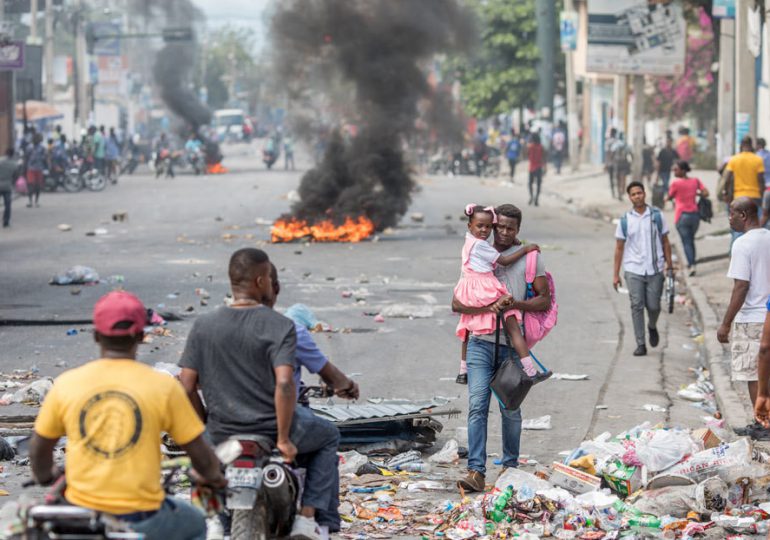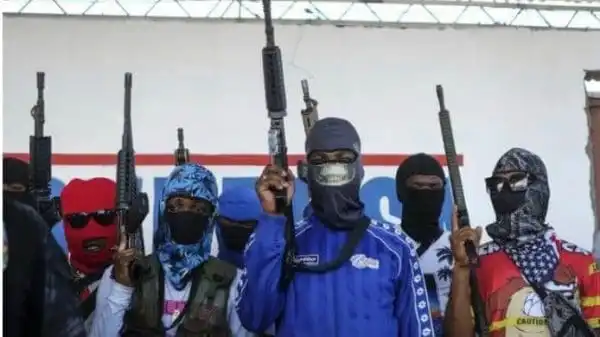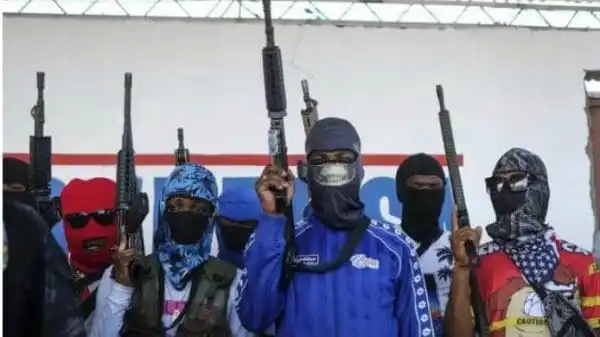
Cooperators narrate the "humanitarian disaster" in Haiti, with stray bullets, kidnappings and fear
Haiti faces a true “humanitarian disaster,” they warn international enemies, whose workers have to deal with the threat of stray bullets in hospitals, kidnappings, fear of gangs, the risk of famine and all kinds of shortages.
In fact, these humanitarian entities highlight the “heroism” of their colleagues in that Caribbean country, a month and a half after the coordinated attacks by armed groups to remove the Prime Minister, Ariel Henry, from power.
The capital, Port-au-Prince, is “an open-air prison, a completely isolated city” in a country where “there is no longer a government, there is no State,” Sarah Chateau, head of the Haiti program for Doctors Without Borders, explains to AFP ( MSF).
The three million inhabitants of Port-au-Prince and its periphery are “trapped,” “permanently shot at,” she continues.
The country's main ports and airports cannot function, blocking any resupply. The roads into and out of the city are controlled by the same violent groups.
“We have a colleague who recently wanted to leave Port-au-Prince to go see her son [outside the city]. She was kidnapped for five days,” Chateau reveals.
In the last month and a half, MSF workers in Haiti have suffered “two kidnappings and two attempts,” she adds.
The capital is experiencing “a humanitarian disaster,” says the head of MSF, the largest NGO in that country, with 1,500 employees and four hospitals in Port-au-Prince that in recent weeks treated more than 400 gunshot wounds.
– Corpses in the streets –
“The shooting is so constant” that MSF structures are hit by “stray bullets,” “one this weekend in the base camp and two in a hospital last week,” says Chateau.
“I became afraid,” says Carlotta Pianigiani, emergency coordinator for the African NGO Alima, who claims she has never “faced such an intense level of violence.”
“In Haiti, we see things we don't see in other places. There is a kind of normality in finding corpses on the street,” especially of alleged gang members, “burned” by the Bwa Kale self-defense movement and left there as a “warning,” she says.
For this reason, “events” are monitored “hour by hour,” with real-time alerts that appear in citizen cooperation WhatsApp groups, explains Pianigiani.
“Although risk management is totally different between Haiti and Gaza (…), they are the two places where it is most dangerous for humanitarian organizations to intervene,” she insists.
William O’Neill, the expert appointed by the UN High Commissioner for Human Rights for Haiti, is concerned about the presence of “child soldiers” in the capital.
Young people of “13, 14 or 15 years old” who previously served as “messengers or sentinels,” but who now go with “big weapons,” he explains.
In the country, eaten away by decades of poverty, natural disasters and political instability, powerful gangs teamed up at the end of February to attack police stations, prisons and large infrastructure and unseat Prime Minister Ariel Henry, who announced his resignation on March 11.
– “Cataclysmic” –
A month later, the Transitional Council that is due to replace him has still not been formed due to disagreements between political parties and other parties involved.
The country is in a “cataclysmic” state, according to the UN. The violence not only paralyzes the capital, it also prevents supplies from other regions.
Around 362,000 Haitians are internally displaced, 5 million people are hungry and 1.64 million are on the brink of famine, says the United Nations.
The country also suffers from a shortage of medicines. “Hospitals need everything: medications, surgical gloves, anesthetics…” says William O’Neill. But also fuel, whose prices, like those of other consumer goods, have skyrocketed.
Only positive note: the NGOs claim not to receive direct threats and want to continue their work.
“We try to see the positive side of things in the sense that we can still work. We don't know what will happen in a few months," observes Virginie Vialas, general coordinator in Haiti of Doctors of the World Switzerland.
But aid workers are “on the edge” because the “chaos” also affects their private lives, with “post-traumatic stress accumulating all the time,” says Haitian doctor Elysée Joseph, who works for MSF.
“Here death is something constant” and “it is an act of heroism to continue going to work,” he says. In Haiti, “when we think the worst has arrived, there is always something to aggravate the situation.”
Leave a Reply












1 Comment
yCFvVZbcnJfkize
il y a 1 semaineaDExMqPiOmpCIl
Reply